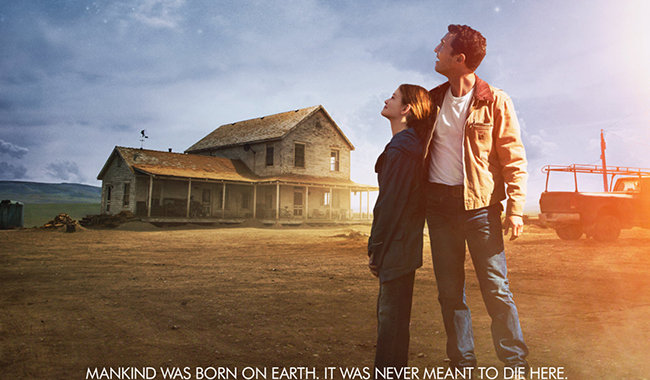
Cinema Reviews
Interstellar Review
In the not too distant future, the earth is beginning to die. The surface is constantly under threat from dust, crops are failing to grow and we as a species are focused more on survival than actually living. Progress has taken a step back in order to make way for more farmers.
Cooper (Matthew McConaughey) a former pilot, works with his family as a farmer. His bright daughter, Murph, has found a gravitational anomaly in her room and the two uncover a binary code that leads them to a NASA test facility where plans are afoot to launch a mission that might mean the survival of our race.
Cooper then has to sacrifice his time on Earth in order to reach the stars and hopefully find a future for humankind. But at what cost?
Whilst Christopher Nolan is keen to explore some wide ideas; he is also keen that the focus of the drama be that of the father and the daughter’s relationship. The weight of what can be gained by the father leaving on this mission is offset against what is lost between him and his daughter. The science though can sometimes get so thick that it often gets in the way and can feel like you are attending a science class discussion as opposed to exploring a narrative filled with interesting characters.
Despite the film’s length it seems that Interstellar is sometimes in a rush to get places. There are incidences early that seem like contrivances to get McConaughey’s farmer involved suddenly which then races to the farewell to his family and then launch. Of course Nolan strives hard in the third act to make it all come home and all make some shred if sense.
This is the strength and fault of the film in that it has a strong opening and closing act. What happens in the middle is a lot of conversation and exposition in order to get you as an audience member to bridge the two. The elongated middle of the film – which itself is made up of several parts of the journey spends far too much time on the logic and little actual time on the humans. You therefore are required to have a lot of patience on the way.
A fault of the film is that it sometimes falls back on well worn sci-fi tropes. Are we really still that excited about ships docking in space anymore? And there is a third act “space crazy” persona to deal with as well. Surely if Nolan had seen Danny Boyle’s Sunshine he would have perhaps redrafted this part of the film.
But human error seems commonplace among science-fiction films stretching right back to Close Encounters of the Third Kind. If that film can have a man deliberately reject his family in favor of exploration then why not expand upon that issue here. But Interstellar at least gives a valuable credence and purpose to that charge of the main character.
More interesting issues and conflicts come through Anne Hathaway’s scientist along for the mission who makes a crucial error in her work priorities. These are the moment when the film is most interesting yet also arguable. But then the film is so full of ideas that it perhaps isn’t a surprise that it requires a lot of dialogue in order to take it in. But the projection of the information might require multiple viewings. And in doing so it will either make the film succeed, or just come off as reading a complicated manual. Too busy trying to be interesting that it sometimes forgets to be compelling.
Steven Hurst





